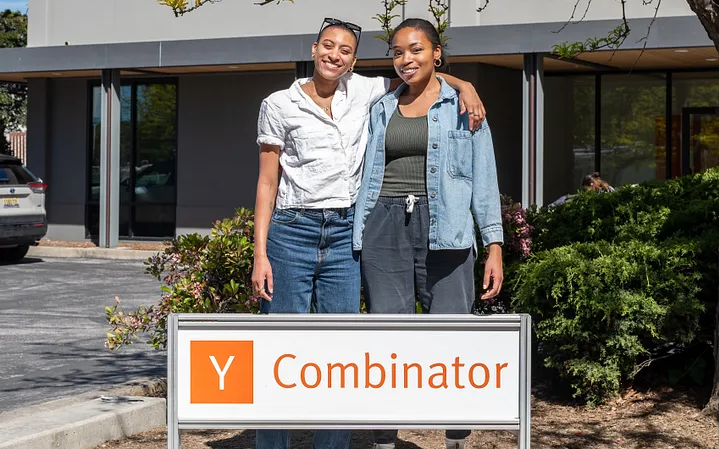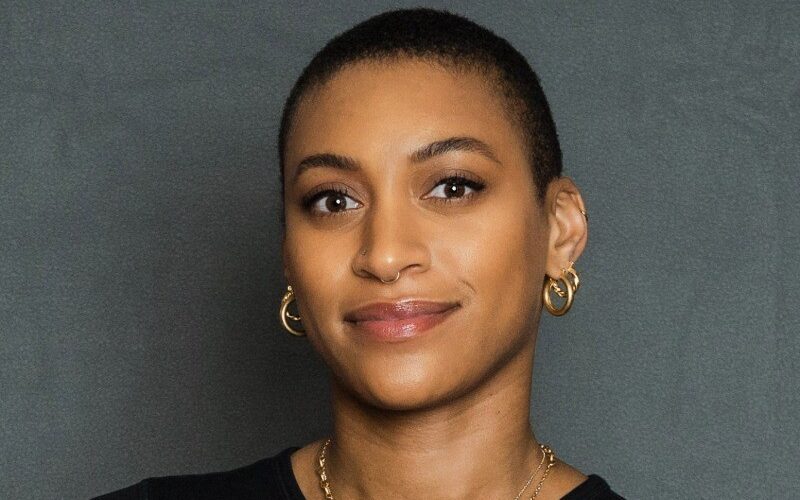Behind The Scenes Of A Y Combinator Interview, According To A Black Tech Founder

This article was first published by Lindsey Redd on Medium.
Over the past couple of weeks I’ve been meeting with current and hopeful founders who want to become Y Combinator founders. They’re applying to the Winter 2024 batch, and naturally have a ton of questions about our experience applying and being accepted to YC. One of the main questions I get is “What was your interview experience like?”
Of course, before there was the interview, there was the application. This is a story in and of itself that I’ll save for another blog post, but what’s relevant right now is that we applied with a completely different idea than what Onu is today. Prior to interviewing at YC, we were working on a B2B wellness mobile app, and this is what we applied with in September of 2022. However, by the end of October, we were dead set on pivoting.
On October 28th, days after deciding to pivot, we got the email inviting us to interview on November 1st. We had 4 days to prepare! This was very stressful to say the least. We didn’t know what to do. Do we decline the interview because we’ve decided to pivot? Do we do the interview but tell them our original idea is not what we’ll continue working on? Or do we just do the interview with our original idea and figure the rest out later?
We took a peek at our quickly dwindling business bank account, and decided that getting into YC no matter what was the top priority. Our plan was to do the interview for our B2B wellness app and then figure out the pivot later.
We immediately started prepping for the interview. This meant digging up every resource we could find about what to expect and how to ace the interview. The interviews are super short — only 10 minutes long — and from what we read online, they were brutal. Everything we read told us that those 10 minutes would be a rapid fire barrage of questions about us and our business and that one mistake would kill our chances! We found a giant list of questions that we needed to be prepared to answer and set out to answer each one and know the answers off the top of our heads.
However, prepping was going to turn out to be extremely difficult because Chine was temporarily moving out of New York, and our interview was on the day of her move. Horrible timing. Moving is stressful regardless, and if you live in NYC it’s even more difficult. We tried our best, but there was very little time to get ready.
We spent the morning of our YC interview, finishing up the last bits of Chine’s move (remember it was November 1st!). Chine’s puppy, Miles, was also flustered. When they got to my apartment, Miles decided to stress poop in my bathroom as soon as he walked in 🙃
About an hour before the interview we hadn’t eaten and we felt extremely unprepared. We grabbed some food and tried our best to answer that giant list of questions. The time came for the interview, and I was unbelievably nervous.
We open up the Zoom and then wait for our interviewers to arrive. We wait and wait and wait, which added exponentially to my stress. At this point, I just wanted to get it over with. If you’re interviewing for YC, expect your interviewers to be late to the call! They’re interviewing companies back to back, and it’s inevitable that they get behind.
Finally, Michael Seibel, Tom Blomfield, and Rich Aberman join the call. We greet each other and then Michael says, “So we love your backgrounds, but we hate your idea. Are you open to changing it?” Chine and I just look at each other, turn back to the camera, and nod yes. I was SHOCKED. The next 10 minutes was a blur, but basically they told us they also didn’t like the other ideas we had listed on our application and asked us to think of ideas that were closer to our backgrounds — something in fintech since we’d worked at Stripe or developer tools since we’re both engineers. The call turned into a brainstorming session where we just listed off different problems that we were familiar with in either of those spaces and answered their follow up questions. At the end of the call, Michael says, “We want you to resubmit your application with a new idea in 1 week and then we’ll interview you again 2 days after that.” The call ended, and all we could do was sit in shock. There was no world in which I thought that would be the outcome of our YC interview. The shock took a long time to wear off. I’m pretty sure I was rolling around on the floor and letting out flabbergasted yells at some point. Eventually, we devised a plan to tackle the new application. We needed to brainstorm.
I thought the days leading up to our YC interview were stressful, but the days following our 1st interview were even more intense. Tom Blomfield and Rich Aberman reached out soon after the interview and offered to do a brainstorming session with us the following day. We prepped several new ideas to go over with them, and they shot down all but one, a developer tools idea based on a tool we used at Stripe. We did several endless, frantic brainstorming sessions before settling on the idea that Tom and Rich liked the most. We resubmitted our application, and again prepped for the interview.
Interview day came again, and I felt awful — I was getting sick with something. My head was foggy and I felt faint. I did everything I could to look and feel as good as possible, but I was struggling. I was panicked about how I was going to pull it together for the sake of the interview. This is just one of the reasons why I will always advise having a co-founder. You need someone to have your back when you’re not able to give 100%. We hopped on the call, and Chine saved the day. The interview was a complete blur to me, and I don’t remember saying much at all. Chine was amazing though. She delivered our new pitch with so much confidence and had beautiful answers to each of their follow up questions. The call ended, and I knew that it had gone the best it could thanks to her.
Read: YC Founders Launch Developer Tool To Bypass Frontend Work
Then we waited. It was agonizing, but 12 hours later we got an email from Michael. He said he had a couple more questions, and wanted to connect again the next morning.
I’ll be honest, after receiving this email, I was mad. I think I called Chine and just yelled. After all of this, they still had more questions?! What else could they want to know?! I just wanted an answer — yes or no!
Of course, I hopped on the call with Michael and Chine the next day with a giant smile on my face, praying that we had good answers to any additional questions he’d have. After greeting us he says, “I just have one more question for you, would you like to join the Winter 23 batch of Y Combinator?”
Again, I was in shock, but this time it felt amazing. We did it. We were going to be Y Combinator founders. I don’t know if I’ve ever felt so much relief in my life. Our answer was obviously an enthusiastic “YES!”

After starting Y Combinator, we came to learn that many teams during our batch had similar experiences. I think the biggest take away is that at this super early stage, YC is looking to invest in teams they believe in, not ideas that are bound to change. To be frank, we were accepted because of our strong backgrounds, grit, and confidence.. They’re looking for teams they believe have the skills, commitment, and resilience to build a successful company. There are so many ways to demonstrate this, which is why I encourage founders who are curious or interested to just apply! You never know what potential they might see in your company, but also in you as a founder.
If you’ve made it this far, thank you for reading! We’re planning on sharing more blog posts about our time before, during and after Y Combinator. I hope sharing this experience was helpful, and let me know if there’s any other YC related content you’d like to see!
This article was first published by Lindsey Redd on Medium.



